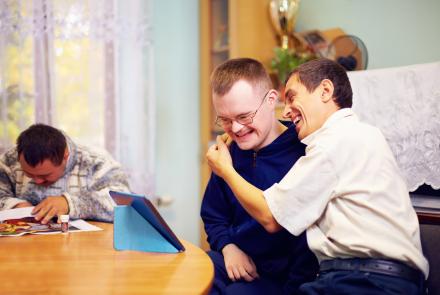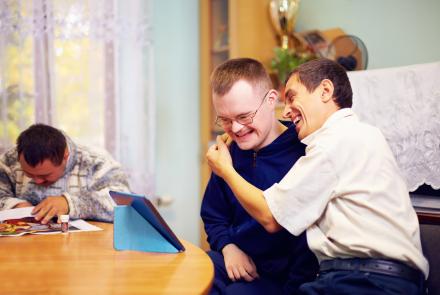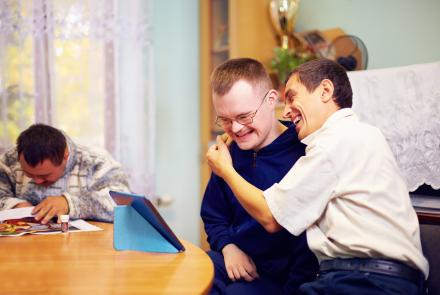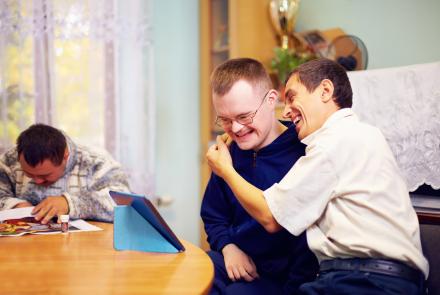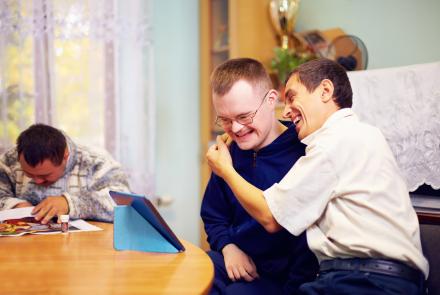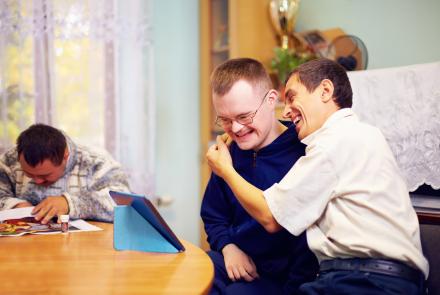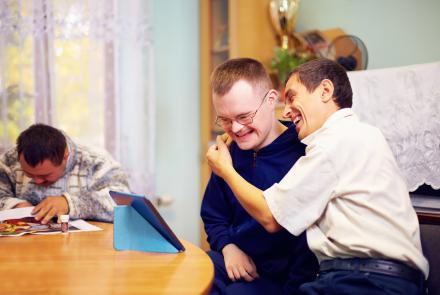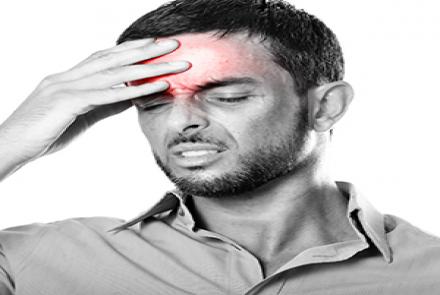Down’s syndrome is also known as trisomy 21. It is a congenital disorder caused from a chromosomal abnormality appearing in about one of every 800 to 1 in 1000 births. This syndrome occurs when one chromosome has an extra “part” and an error occurs in cell division, or an extra chromosome exists, resulting in 47 chromosomes. (Chromosome is a thread-like structure of nucleic acids and protein found in the nucleus of most living cells, carrying genetic information in the form of genes.)
Usually…
Latest Stories
- Screening and diagnostic tests The American College of Obstetricians and Gynecologists recommends offering the option of screening tests and diagnostic tests for Down’s syndrome to all pregnant women, regardless of age. Screening tests can indicate the likelihood a mother is carrying a baby with Down’s syndrome. Diagnostic tests can identify whether your baby has Down’s syndrome. Screening tests during pregnancy Screening for Down’s syndrome is offered as a routine part of prenatal care.…
- There are 3 types of Down's syndrome based on the causes of Down's Syndrome: - Trisomy21 - Mosaic Down's Syndrome - Translocation Down's Syndrome What are the complications of Down’s syndrome? It is common for babies born with Down’s syndrome to have some health problems. Most of these problems can be treated. Problems of the heart, lungs and thyroid gland are common. Eyesight problems (crossed eyes, near- or far-sightedness, cataract) hearing loss, obstructed digestive tracts, sleep apnea and…
- Signs of Down's Syndrome: Although all babies with Down's syndrome will not have the same features, they will have have some of these physical features: • Almond shaped eyes (unusual for their ethnic group) • Smaller head and hands • Flat nose • Wide feet with short toes • Large tongue • Poor muscle tone (appear to be floppy) • Short neck • …
- Down’s syndrome is usually caused by an error in cell division. All people with Down’s syndrome have an extra, critical portion of chromosome 21 present in all or some of their cells. This additional genetic material alters the course of development and causes the characteristics associated with the syndrome. Trisomy 21 - About 95 percent of the time, Down syndrome is caused by trisomy 21. Mosaic Down syndrome - In this form children have some cells with an extra copy of chromosome 21.…
- You can do nothing to prevent Down's syndrome. If you already have a child with Down's syndrome, you are definitely at high risk of having another child with Down syndrome. You may want to consult your gynaecologist or genetic counselor before becoming pregnant again. Your gynaecologist or a genetic counselor can help you understand your chances of having a child with Down syndrome. He or she can also explain the prenatal tests that are available and help explain the pros and cons of…
- Treatment While there is no cure or treatment for Down’s syndrome, it is important to follow early intervention protocols to manage the development challenges. It is a disorder that a person will have all of his or her life. Down’s syndrome is not contagious, and it affects all races and nationalities. No one can “get” Down syndrome later in life. Doctors cannot pinpoint why this extra or altered chromosome problem happens, but they know that it is not the result of what the mother or father…
- Porrselvi A.P. a cognitive and psychosocial interventions specialist shares the six common migraine triggers for men and women. And what you should do to pro-actively manage your migraine. Migraine is a severe, recurring and throbbing pain, usually on one side of the head. It is a chronic neurological disorder in which a throbbing, pulsating type of headache is only a symptom. Migraine is actually caused by the uneven vasodilation of the cranial blood vessels (…
- Today is World Kidney Day and the theme this year is ‘Kidney Disease & Children – Act Early to Prevent it’. We spoke to Dr Pankaj Deshpande, pediatric nephrologist, to apprise us about kidney disorders in children and how they can be alleviated. What are some of the common kidney diseases/disorders in children? How does it affect them? There are many kidney illnesses in children and that actually evokes surprise in a lot of people as they are quite unaware that kidney…

